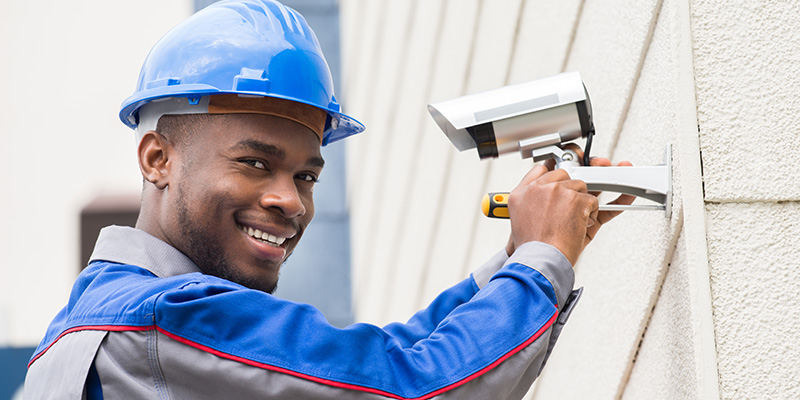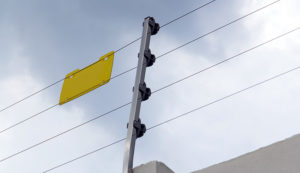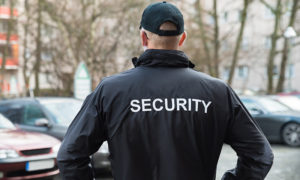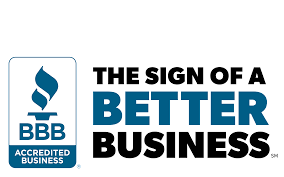11 Ways To Ensure Effective Security In HOA Community
January 15, 2023


Most residents of HOA communities have the benefit of feeling safer and more secure than those in a public community. To ensure HOA security remains in tiptop shape, it’s crucial for HOAs to get the most out of their security measures.
HOW TO IMPROVE HOA SECURITY IN YOUR COMMUNITY
Homeowners association security continues to be a priority among community leaders. While an HOA’s primary duty does not typically involve security and safety, the association does take steps to ensure residents feel safe. They provide proper street lighting, use security cameras, and have gate locks as well. But, an HOA board can do more to keep the neighborhood safe. Here are some effective HOA security ideas to help you get started:
1. PERFORM AN HOA SECURITY ASSESSMENT
HOA safety begins with an assessment. You have no way of knowing how vulnerable your community is without performing an HOA security assessment. If you don’t know what that is, it is simply an on-site security inspection that helps identify which areas of your community are exposed to threats. It pinpoints possible security issues in an effort to patch these holes using effective solutions while identifying expected costs.
Your HOA board can perform this assessment yourselves, though doing that does run the risk of missing key details. It is infinitely better to have a professional conduct the assessment. Typically, security assessments will cost your association somewhere between $1,500 and $5,000, though that doesn’t include the cost of equipment and personnel yet.
2. STAY UP-TO-DATE WITH PREMISE LIABILITY LAWS
The law can vary depending on the state, but communities may be responsible for preventing third parties from injury or doing something to cause injury to others. This is called premise liability. Check if this is the case for your state, and if it is, provide signs in common places clearly informing the community about these laws.
Premise liability cases can range from slips and falls to dog bites. It also includes injury resulting from inadequate maintenance, elevator accidents, swimming pool accidents, and even water leaks or toxic fumes. To prevent such cases for your HOA, make sure your common areas are properly maintained at all times.
You should also check any building codes or ordinances that apply to your association. One of the biggest mistakes you can make is to ignore these building codes and put your HOA in danger of liability.
3. ENSURE SECURITY MEASURES ARE EFFECTIVE
 You may have security measures currently installed, but check that they are actually doing their job. For example, an installed security fence should be over three to four feet tall to effectively keep people out.
You may have security measures currently installed, but check that they are actually doing their job. For example, an installed security fence should be over three to four feet tall to effectively keep people out.
Clear warning signs that set rules about what residents can or cannot do are another example. Some HOAs have security measures in place simply for the sake of having them. Make sure your HOA doesn’t fall under that category.
It’s a good idea to form a Safety and Security Committee to constantly monitor these measures and issues, too. This committee can also discuss any concerns related to safety and security, then propose plans of action for the board to review.
4. REVIEW RESIDENT SECURITY ANNUALLY
An HOA board should be surveying or checking in with residents each year to make sure security measures are doing what they should. Find out if residents feel unsafe in their community and get details about how they feel unsafe and in what situations. This will give you an idea of what gaps in security to address. Although this is usually done during the security assessment, it is an equally good idea to check with residents regularly, even outside of the assessment.
5. SCHEDULE REGULAR MAINTENANCE OF HOA SECURITY SYSTEMS
It’s important to schedule regular maintenance and repairs for the security systems you use. You’ll want to have a service contract set up with either the Original Equipment Manufacturer (OEM) or a community management service provider who knows the system.
6. ENSURE EFFECTIVE USE OF HOA SECURITY CAMERAS
You may have cameras set up for the community, but they are much less effective without regular monitoring. The main reason for cameras is to help to stop crimes in action, so make it a part of your HOA security camera policy to have someone watching them regularly. This way, someone can alert the police right away and potentially catch the perpetrator(s). Make sure to install security cameras in common areas, even the streets. See to it that you cover the blind spots as well.
Keep in mind, though, that CCTVs are not a universal solution to your security woes. Don’t rely solely on security cameras for the safety of your community. You should use a combination of these tips to ensure maximum protection.
CCTVs do provide a degree of security, but whether or not to use them remains up to you. After all, security cameras aren’t cheap, so you should first make sure there’s room in the budget for them. Additionally, some homeowners may threaten legal action if a crime occurs and the CCTVs failed to catch it on camera.
7. TAKE ADVANTAGE OF LANDSCAPING
Some HOAs don’t think landscaping plays much of a role when it comes to HOA crime prevention. However, the reverse is actually true. Overgrown foliage can serve as a good hiding place for criminals. Extended tree branches can be used as a way to climb into second-floor windows. Prevent these things from happening by maintaining proper landscaping at all times. Trim trees and shrubs regularly.
Better yet, take advantage of your landscaping to deter criminals. Instead of regular shrubs, plant thorny shrubs to serve as barriers. If you live in an enclosed community, having such barriers, in addition to fences, can ward away potential offenders.
8. EDUCATE RESIDENTS
 The HOA’s scope is limited to the common areas, which means they have no way of ensuring effective security in HOA and safety within homes. A good way to do this is to educate residents on safety protocols.
The HOA’s scope is limited to the common areas, which means they have no way of ensuring effective security in HOA and safety within homes. A good way to do this is to educate residents on safety protocols.
Schedule a meeting to orient homeowners on the proper security procedures. This includes safety measures such as:
- Installing CO detectors inside their homes;
- The proper use of portable generators;
- Installing a home alarm system connected to the police department;
- Taking inventory of their property and belongings;
- Leaving a light turned on at night to ward off intruders;
- Asking a neighbor to bring their newspaper and mail inside when they’re on vacation (to create the illusion of someone being home);
- Discouraging the hiding of spare keys in obvious places; and,
- Encouraging members to say something if they see something.
9. PARTNER WITH LOCAL LAW ENFORCEMENT
The HOA board shouldn’t have to act alone when it comes to security in HOA communities. Associations should build a strong working relationship with local law enforcement to help prevent crime. Invite the law enforcement liaison to your meetings. Don’t bring up frivolous complaints and don’t waste their time. Trust in their judgment. After all, they have more experience than you do.
10. ORGANIZE A NEIGHBORHOOD WATCH PROGRAM
A neighborhood watch program is a great way to get residents involved and make them feel safe as well. Watch programs typically consist of volunteer members from the community patrolling blocks in rotation to prevent crime.
When organizing a neighborhood watch program, make sure to lay down some ground rules. For instance, residents shouldn’t take action when they see a crime being committed. Instead, they should contact local law enforcement to let the professionals handle the job.
Most importantly, though, the HOA should separate itself from the neighborhood watch to avoid possible liability. Boards can allow residents to organize a neighborhood watch, but they should make sure not to maintain an official relationship with the watch program.
11. CONSIDER PROFESSIONAL SERVICES
Your HOA board can always turn to security firms to protect the community. Professionals have more experience handling safety and crime prevention, and they also have the necessary tools for it. Hiring HOA security companies will cost you a bit more, though, than if you choose to handle it yourself. So, make sure there’s room in the budget for these expert services.
When hiring a security company, remember to look for an independent third-party. In other words, if there’s a conflict of interest with one or more board members, it’s best to look for other options. Hiring a firm associated with a board member can put the HOA and board at risk of liability.
There’s also the question of whether or not to hire armed or unarmed guards. Keep in mind that the presence and use of weapons can also lead to legal trouble for the association. If a guard mishandles or misuses the weapon, homeowners might sue the HOA, even if the weapon wasn’t discharged or didn’t cause bodily harm.
UNDERSTANDING HOA SECURITY RESPONSIBILITIES
Is HOA responsible for security? Homeowners associations have the primary goal of protecting property values within the community. That usually involves improving curb appeal and enforcing rules in line with the association’s best interests. Although HOAs should offer some level of security, they are not entirely responsible for it.
Still, HOAs should remember that there are certain liability issues associated with security in the community. For instance, if an HOA fails to resolve a safety concern in a timely and appropriate manner, it may be held liable for damage or loss resulting from the concern. The same goes for when board members fail to promptly report any suspicious activity.
One way of shielding your HOA and board from potential liability is to avoid making promises. Board members should not promise or guarantee members’ safety within the community. You must also avoid making any statements that might be interpreted as a promise or guarantee. It’s also a good idea to include a security disclaimer in all printed or published materials.
It’s also worth examining your current insurance policies to see if they provide adequate coverage from safety and security risks. To protect the HOA and board from liability, D&O insurance is equally necessary.
Finally, you should consult with your HOA attorney to evaluate your exposure to liabilities related to safety and security. This is especially important if your governing documents don’t expressly state the association’s responsibility to provide security.
A PRIORITY AMONG HOMEOWNERS
 HOA security is a big issue for homeowners and HOA boards alike. In fact, safety is one of the primary things potential homeowners consider when buying a house.
HOA security is a big issue for homeowners and HOA boards alike. In fact, safety is one of the primary things potential homeowners consider when buying a house.
Adopt these security solutions to bring stronger peace of mind to HOA communities. Make sure to implement them on a regular basis to keep residents safe and feeling at ease.






